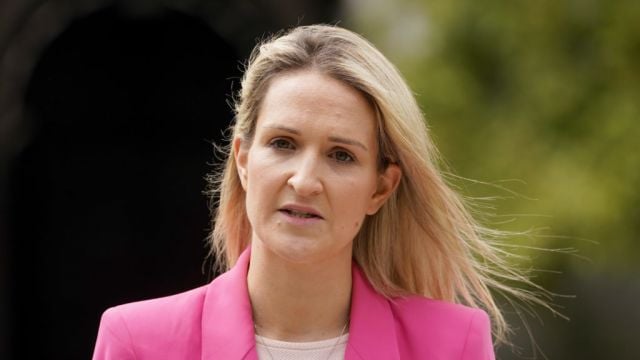Justice Minister Helen McEntee was advised Ireland needed to do much more to encourage failed asylum seekers to return to their own country as a “willing participant.”
In a briefing, the minister was told so-called voluntary returns offered a “positive experience for both the state and the person being removed” as an alternative to deportation.
The advisory was prepared in advance of a March meeting between Ms McEntee and her counterpart in Denmark, where only 10 percent of asylum seekers who leave the country are forcibly removed.
The briefing said Denmark was an “enthusiastic user” of the voluntary return process and that this was an approach both countries agreed on.
Department of Justice officials said Ireland should be aiming to have between 400 and 500 failed applicants leave of their own accord during 2024.
Of the 317 returns that took place last year, 213 of them, or 67 percent, happened by way of voluntary return.
The briefing said a new unit had been set up within the department late last year to help encourage asylum seekers to return home willingly.
It explained how complex cases could be managed through the International Organisation for Migration (IOM), which can offer grants to people to help them get reestablished in their own country.
Officials said new promotional material had also been prepared for asylum seekers to outline the downsides of the deportation process for them.
A sample flyer said deportation carried a “risk of detention”, involved a police escort, and would likely lead to a lifetime ban on entry to Ireland and the European Union.
It also said authorities in the destination country would have to be made aware of their removal and that no financial aid would be provided.
However, for voluntary returns, there was “no detention”, “no escorts”, and the person would travel “like any other passenger”.
It promised too there would be no re-entry ban for Ireland or the EU, and that financial support could be made available in some cases to settle back at home.
The flyer added: “You can also decide to leave without our help, but you do need to tell us so that we can close your file and stop a deportation order from issuing.”
Ms McEntee was told as well that a high-level group had been set up to focus on deportation and voluntary returns.
The briefing said: “[It addresses] cross governmental deficiencies in the area of removals generally and meetings on a weekly basis are being held by management staff in all relevant areas.”
The minister was also told that some EU countries continued to use deportation as their primary choice for removal of failed asylum seekers.
It said that in Germany and Hungary, only “forced returns” were used while more than 85 percent of all returns in Italy, the Czech Republic, and Croatia were enforced removals.
Asked about the briefing, which was released under Freedom of Information laws, a spokesman for the Department of Justice said: “Working to ensure that an effective returns process is in place is a key focus in discussions on migration management at EU level.
“As the notes set out, deportations and assisted returns programs form an important part of the immigration system in Ireland, and other EU Member States.”







